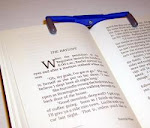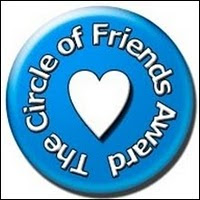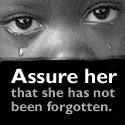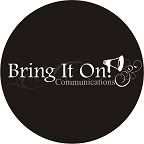One can never be fully prepared for an earth shattering event. Such was the case for Gilbert Ahrens and his family – his wife, Kim, and his three-week old daughter, Olivia. Their lives changed in a blink of an eye in October, 2002 in Denver, Colorado. The family, along with Gil’s sister, Margo, was returning back to the hotel after celebrating the wedding of Gil’s cousin, Barry. All of a sudden, a car powered by an 18 year old drunk driver came barreling at them, speeding their way at 95 miles per hour; Gil was traveling 60 miles an hour. The cars collided head-on, instantly killing the 18 year old passenger in the other car, and seriously injuring Kim, who was in the back seat with Olivia, and Gil, whose foot was shattered. Kim sustained a broken neck, and was paralyzed from the neck down. Thank God, Olivia and Margo were physically unharmed.
‘Shattered, Shaken, and Stirred: Reconnecting with What Matters Most after Loss and Adversity ’ is a love letter to Olivia from her father, detailing the events in their lives following this terrible tragedy, and putting his love for her and her mom in print form.
’ is a love letter to Olivia from her father, detailing the events in their lives following this terrible tragedy, and putting his love for her and her mom in print form.
Here is Gil being interviewed about his book:
Here is the ‘blurb’ from the back cover of the book:
A devastating car accident upends, disrupts and derails a seemingly ordinary family. In the wake of devastation is where recovery and, ultimately, redemption are found. Shattered, Shaken and Stirred explores and embraces the process of brokenness and healing in a way that is honest, heartfelt, and yet at times reassuringly humorous….
This book is a real-life example of the power of reconnecting with what matters most. It offers hope and encouragement to anyone feeling the strain of life’s struggles.
Mr. Ahrens is a masterful writer. Here’s an example detailing his thoughts right before the accident occurred:
During that brief moment before the collision, when my mind escaped the horror of inevitability and journeyed to a place where time slowed down and I could sense a greater force, I had enough time to ask God to save us. In that instant, right before impact, I knew – with absolute certainty – that God was present. I knew He was there with so not so much because I could hear Him or see Him, but because I could feel Him. He was there with us. And, right before impact, I could feel Him say, “This is going to be bad, but don’t worry, I am with you.”
God was there when we needed Him. I could not have imagined how much more we would need Him going forward. (pp. 27-28)
Mr. Ahrens provides a lot of practical advice on how to survive devastating losses. Here are some suggestions (pp. 54-55):
1. Seek Assistance
- Emotional and Spiritual - seek out and connect with a trusted person who can be your confidential and emotional guide.
- Medical – assign a case manager to whom all other medical specialists report.
- Legal – assign a power of attorney to a trusted friend or relative.
- Insurance – buy more insurance than you think you’ll need, or at least more than you currently need.
2. Connect with your Existing Networks – connect with one responsible member from each group and put that person in charge of that particular group. Then connect the leaders with each other.
3. Seek and Ask for Forgiveness – don’t blame yourself for your current situation, but seek forgiveness for past transgressions, including ones you don’t even know about. You will also need to extend forgiveness to anyone for whom you hold a grudge. It is nearly impossible to ask for help when your heart carries the burdens of unresolved umbrage or some hidden guilt from resentment that others harbor against you.
Kim was a tower of strength during her long period of rehabilitation. She began her career as a nurse, which served her well as she navigated the medical and insurance industry obstacles. Gilbert was amazed by her strength; here, he elaborates to Olivia:
But the truth is that your mother was far better equipped than me.
Sure, she understood medicine and issues surrounding the body; but that knowledge she would have imparted on my behalf as well. The real difference is that she was far stronger and tougher than I ever could have been. She had inner strength and determination that were positive motivators. More important, she had a peace and grace that could withstand the greatest challenges and torment. Had I been in her place, I am certain that I would have become an ogre. I would have cast anger and misery through our house.
Your mother, on the other hand, grew more resolved that she would not be defined by her physical condition. It never detracted from her character. In fact, she used it as an opportunity to be more loving, compassionate and merciful. (pp. 73-74)
Gilbert was well aware that God was with his family, but he was also aware that we have an enemy who wants to steal, kill, and destroy; Gil called him the Dragon. Gil also observed that there were obvious and discernible differences between those with and without faith:
Despite challenging circumstances, patients with faith had a measure of hope and optimism about the new journey ahead of them. Patients who did not were despondent and despairing. Those with faith look forward. Those without faith looked back. Those with faith didn’t seek to blame their situation on someone or something. Those without faith were often bitter and angry with a perceived perpetrator, the world, or themselves. Those with faith searched for new ways to live. Those without faith tried to reclaim the way they used to live. Those with faith tried to repel the Dragon. Those without faith didn’t think it mattered. (p. 80)
I was especially struck by that paragraph. I find myself sometimes looking at life through the eyes of one without faith. This passage opened my eyes to some untruths I had been believing.
Gilbert made the observation that being a caregiver is hard work. He made the case that being a selfless helper is the right and proper way to behave:
It got us closer to God because I think it was how He wanted us to act. It made me reflect on how Jesus was the ultimate model of one who served with caring and compassionate selflessness. (p. 90)
The experience also showed Gil how we should deal with fear. He’d always considered Franklin D. Roosevelt’s famous quote, “The only thing we have to fear is…fear itself” to be his all-time favorite – and more so after the accident:
My simple interpretation is that you gotta have faith. Faith in God, in yourself, in your friends, family, and colleagues, and in the belief that the future will ultimately be better than the present. This trust is the manifestation of God’s grace.
Ultimately, we need not fear anything because God has taken care of everything. That doesn’t mean we shouldn’t shuffle our feet and work hard at every endeavor; rather, it simply implies that we needn’t fear so much the present outcome, because the ultimate outcome is assured. It’s all in God’s control, which means that the outcome is going to be good. Should we be fearful, we had better be afraid, because it means we have lost our faith. (p. 105)
The Ahrens family learned a lot during this ordeal. Gil in particular, learned a lot about “The System” – and how it operates. He made some observations about ‘Big Pharma’ – the pharmaceutical industry -which gets one to thinking about life in our society these days:
At some point in my time, we came to believe that all physical or emotional challenges were more like “flaws” that could be treated medically. Big Pharma had cleverly altered our thinking such that, as empowered consumers, we were justified to treat ourselves through modern medicine. It was a strange notion of entitlement based on a growing perception of easy elimination of life’s imperfections through simple consumption of a pill or two. Companies were making a fortune selling us this junk. And, of course, many of these “enhancement” drugs were just as addictive as heroin, just less obvious. As any street corner dope peddler in my time said, “The first taste is always free; the others will cost you dearly.” (p. 144)
After making this very thought-provoking observation, he provides the real antidote:
In our quest [for gratification], we filled ourselves up with everything that under the sun. Yes, everything eventually wore off, disappointed, or disappeared. Except for God’s grace, which was free for us to accept at anytime. But the only way to accept that was through submission. Such a thought was more than most could bear, because it meant abandoning our attempts to seek fulfillment through our own efforts or consumptions. (p. 145)
Ultimately, because of God’s grace, and her will and determination, Kim made a remarkable recovery. Gil interprets the improvements for Olivia this way:
Your mother’s growing freedom from within the confines of Quadriplegia was directly correlated to her determination to work hard and to work with God. More than anyone I knew, your mother did not just invite God into her life, she yielded her life to Him. She let Him take over. Her independence was because of her dependence on God. Consequently, everyone who knew your mother was blessed because they got to bear witness to God working in her life. (p. 214)
I found this book to be so inspiring! All of us will go through trials in this life – praying they aren’t all this devastating. ‘Shattered, Shaken and Stirred ’ provides wonderful and Godly advice from a family man who was able, with the grace of God, to keep his family intact despite the obstacles. I highly recommend this book to anyone who wants to be encouraged and to see how God brings us through events. I am grateful that Gil, Kim and Olivia are healthy and intact – and even better after they lived through this part of their lives. And I thank Gil for sharing his insights – originally directed to Olivia – with the world at large. I pray it will be used for good (Romans 8:28) by many people.
’ provides wonderful and Godly advice from a family man who was able, with the grace of God, to keep his family intact despite the obstacles. I highly recommend this book to anyone who wants to be encouraged and to see how God brings us through events. I am grateful that Gil, Kim and Olivia are healthy and intact – and even better after they lived through this part of their lives. And I thank Gil for sharing his insights – originally directed to Olivia – with the world at large. I pray it will be used for good (Romans 8:28) by many people.
You can order this book here .
.
This book was published by Positano Press and provided by the B&B Media Group for review purposes.





























.jpg)







No comments:
Post a Comment